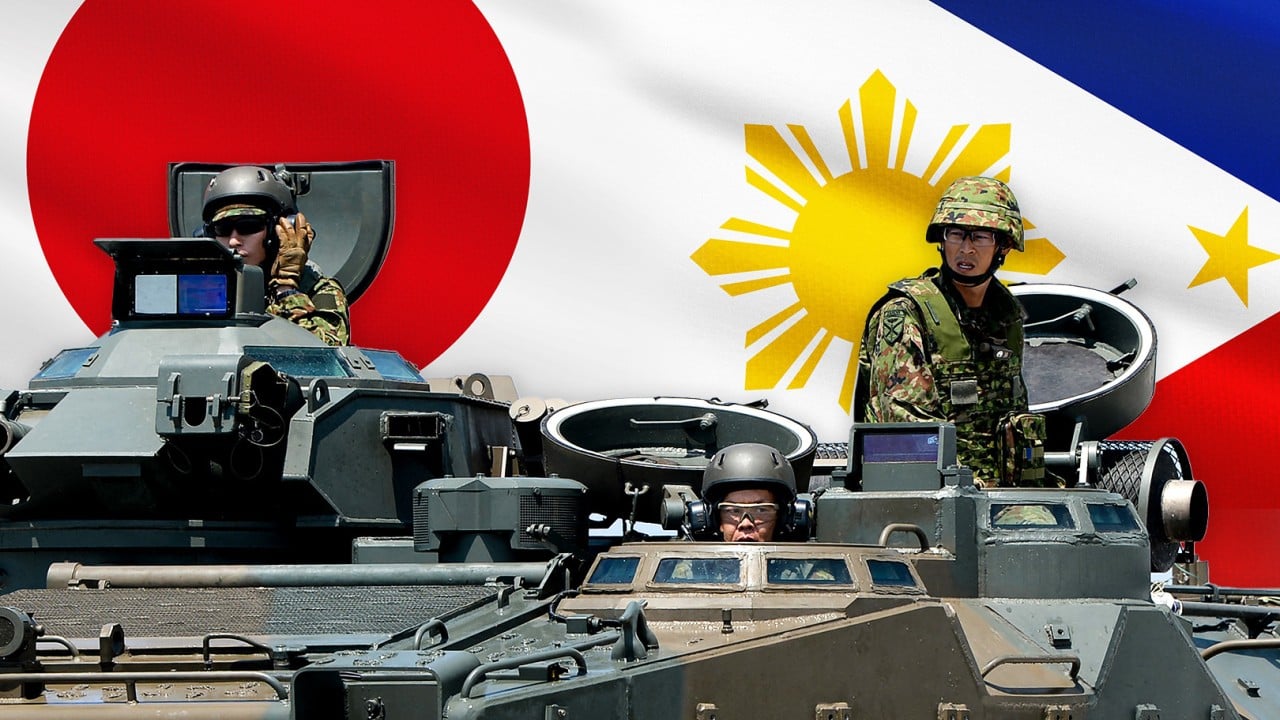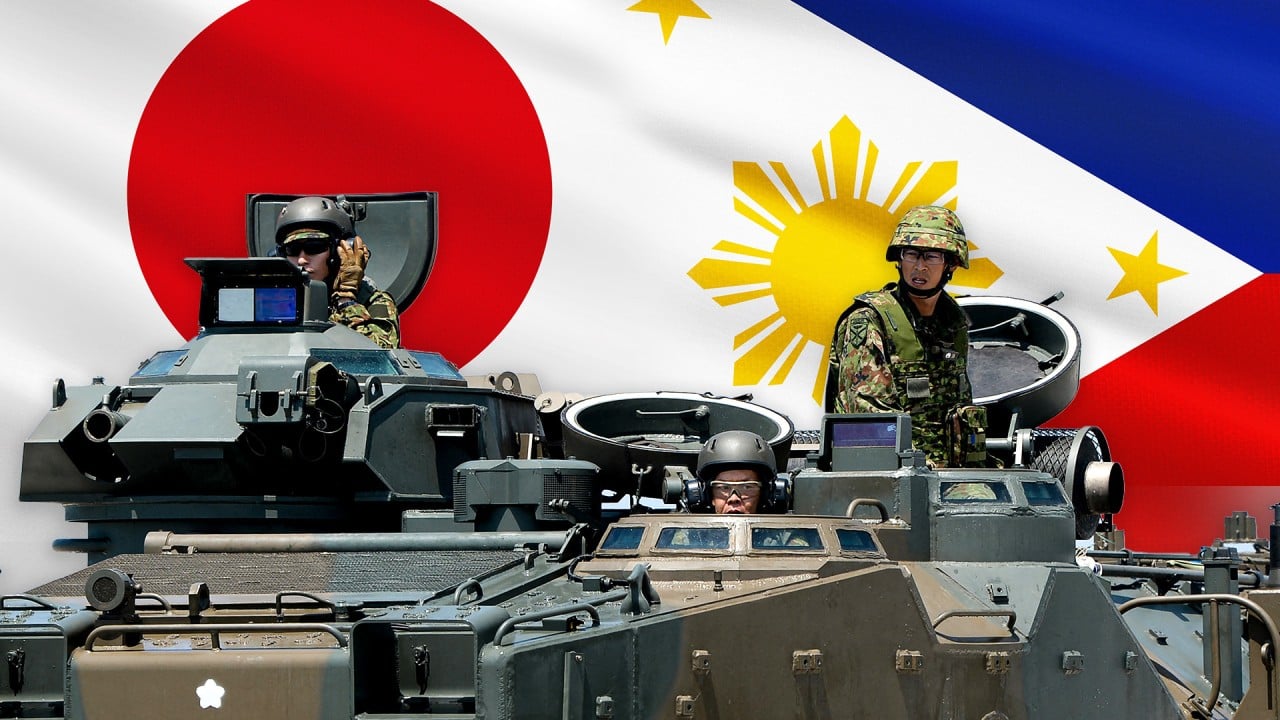The Philippines is poised to approve a landmark defence pact with Japan, but the timing remains uncertain as Tokyo lobbies for swift passage and Manila’s Senate vows to meticulously scrutinise the deal.
On July 8, Philippine Defence Secretary Gilberto Teodoro and Japanese Foreign Minister Yoko Kamikawa signed the Reciprocal Access Agreement (RAA), enabling the two nations to jointly train troops and provide mutual aid during natural disasters. However, the full text of the RAA remains shrouded in secrecy, known only to the presidential palace and the agreement’s signatories.
That veil of confidentiality is unlikely to lift until the Philippine Senate formally reviews the pact on July 22 when it reconvenes. Historically, the upper house has been slow to approve foreign treaties, and the influential head of the Senate Foreign Relations Committee, Senator Imee Marcos – the president’s own sister – has vowed to scrutinise “every word” of the document in the “national interest”.
But her interpretation of that interest could clash with President Ferdinand Marcos Jnr’s push for a swift approval.
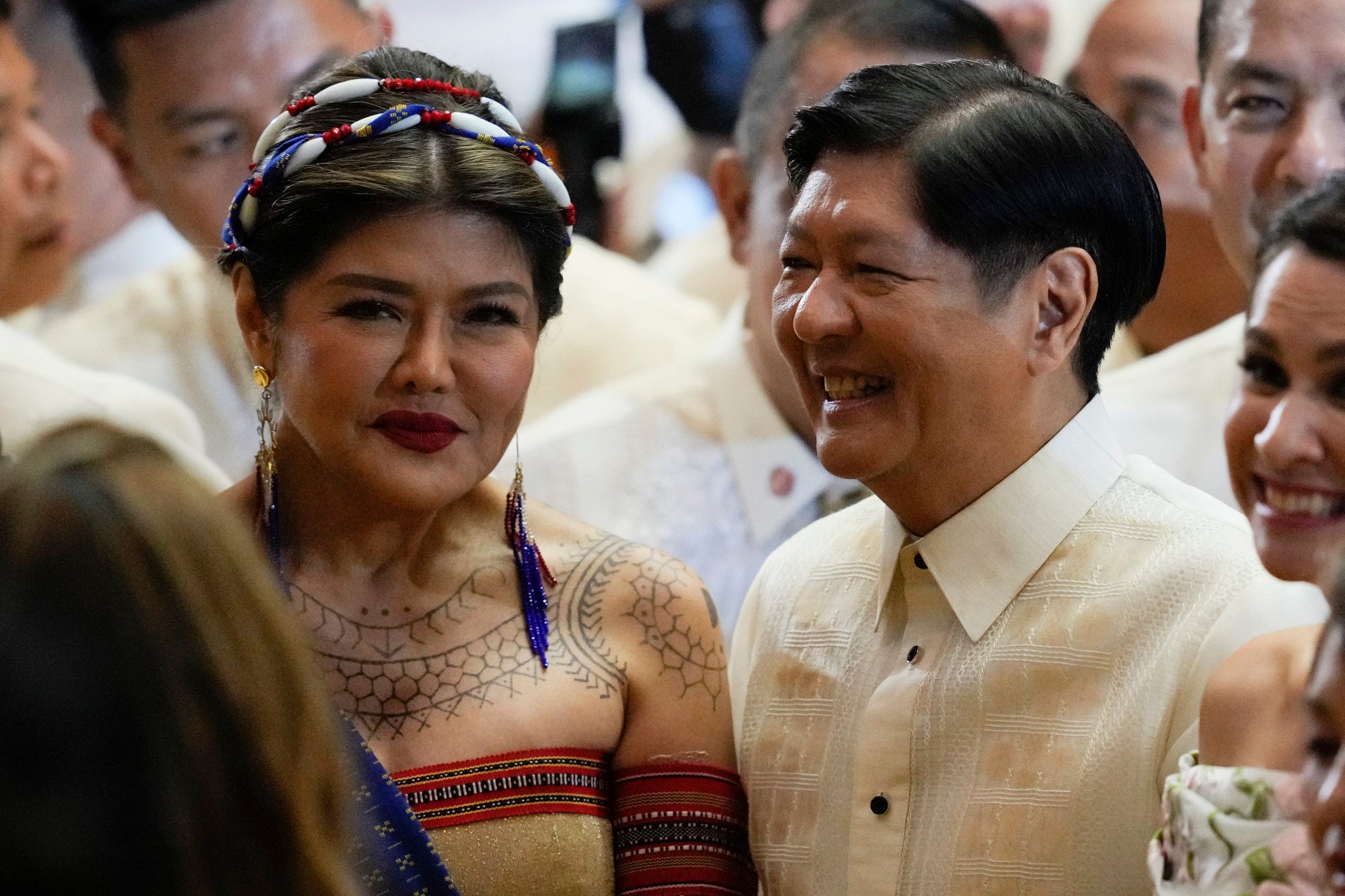
Senator Marcos has openly questioned the strategic merits of her brother’s decision last year to grant the US military expanded access to Philippine bases, arguing that it does not serve the country’s interests. She has challenged the locations of these new sites facing Taiwan, bluntly asking at the time: “What’s our fight with Taiwan?”
Just a week before the Manila-Tokyo pact was signed, Marcos stoked further alarm on social media, claiming she had seen evidence of a Chinese “hypersonic missile” plan targeting 25 sites in the Philippines – an assertion promptly denied by Beijing’s Ministry of Foreign Affairs. The senator insinuated that the increased US military presence would only provoke China’s wrath.
While she has yet to directly criticise the new defence agreement with Japan, she has made clear the Senate Foreign Relations Committee she chairs will subject “every line and every word” of the treaty to intense scrutiny to ensure it aligns with the national interest. However, she has also said the Philippines should welcome “stronger security ties with our neighbours in the Asia-Pacific region.”
Under Senate rules, the pact must be referred to the committee, undergo three readings and secure approval through a two-thirds vote – or at least 16 senators. With elections looming in May next year, lawmakers have only until early February to ratify the treaty if Japanese forces are to participate in the annual Balikatan military exercises scheduled for next year.
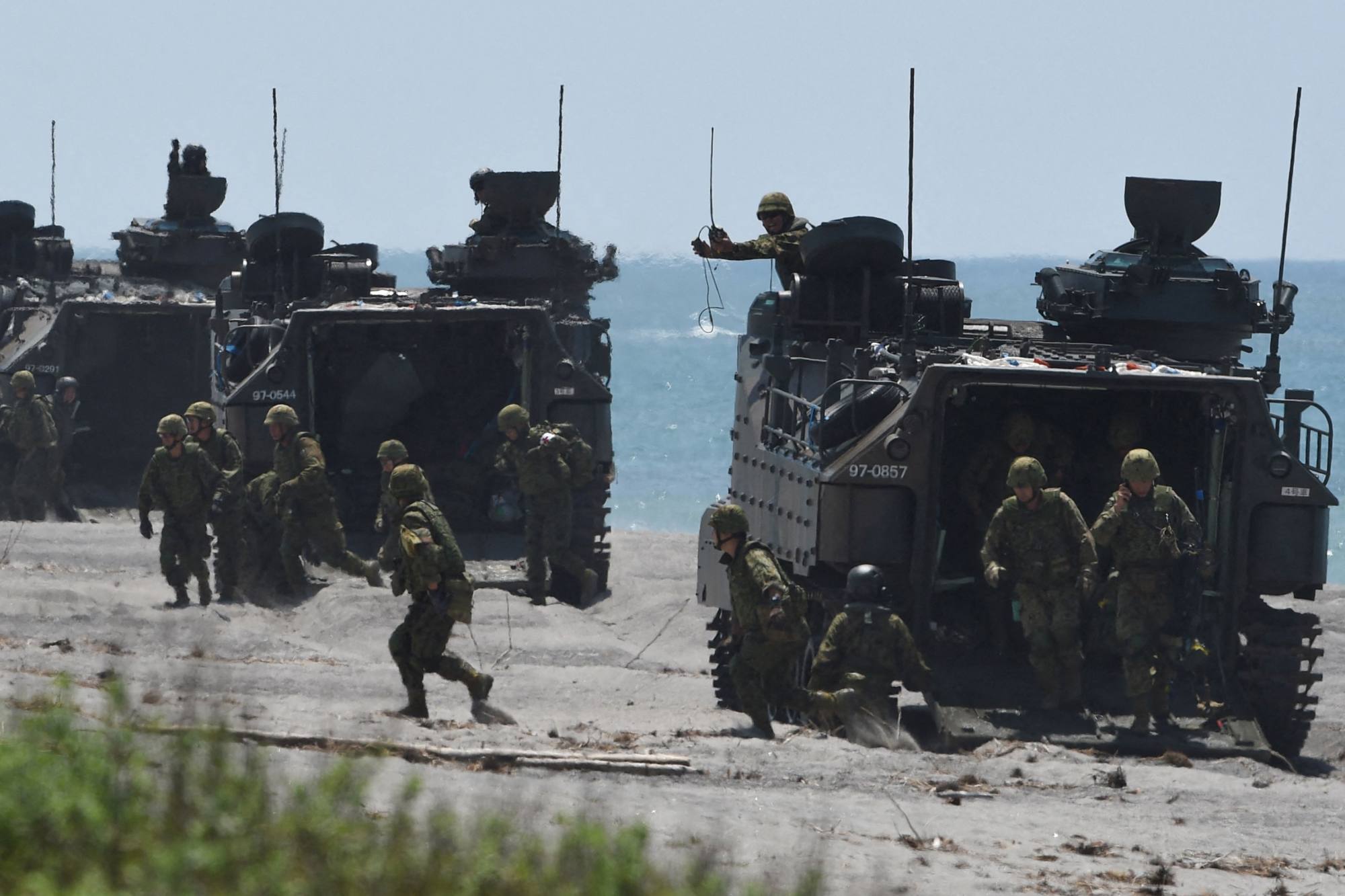
The Senate has a reputation for glacial progress on such international agreements: the Philippines-Australia visiting forces pact, for instance, languished for two years before its final ratification in 2012. And this new Manila-Tokyo defence deal is poised to face the most rigorous scrutiny of any treaty in recent memory.
Further complicating matters, six other international agreements remain pending in the Senate, placing additional demands on lawmakers’ limited bandwidth.
But with polls less than a year away, Senator Marcos – who is up for re-election herself – may ultimately need to weigh the political calculations of approving the treaty against the objections she has already raised.
Recent private surveys indicate most Filipino voters favour expanded regional military cooperation.
Intense Japanese lobbying
The Japanese government is not leaving anything to chance, however – proactively engaging with Philippine lawmakers to facilitate the treaty’s passage.
Just a day after the RAA’s signing, Kamikawa paid a “courtesy call” to Senate President Francis “Chiz” Escudero.
According to the Japanese embassy’s account of the visit, Kamikawa “expressed her desire to further strengthen security and maritime cooperation, including through the RAA” as well as cooperation in economic security, infrastructure development, and cultural exchange.
In response, Escudero assured Kamikawa that he would “make every effort to ensure … the early ratification of the RAA by the Senate”, the embassy’s press release said.
He later told reporters the agreement would help “strengthen and firm up our position on the issue with China on the West Philippine Sea” – the Philippines’ name for areas of the South China Sea it claims. Escudero also acknowledged that many of his fellow senators support the RAA.
However, the Senate president was quick to temper expectations, emphasising that the chamber would still “scrutinise it like other treaties” before considering granting its approval.
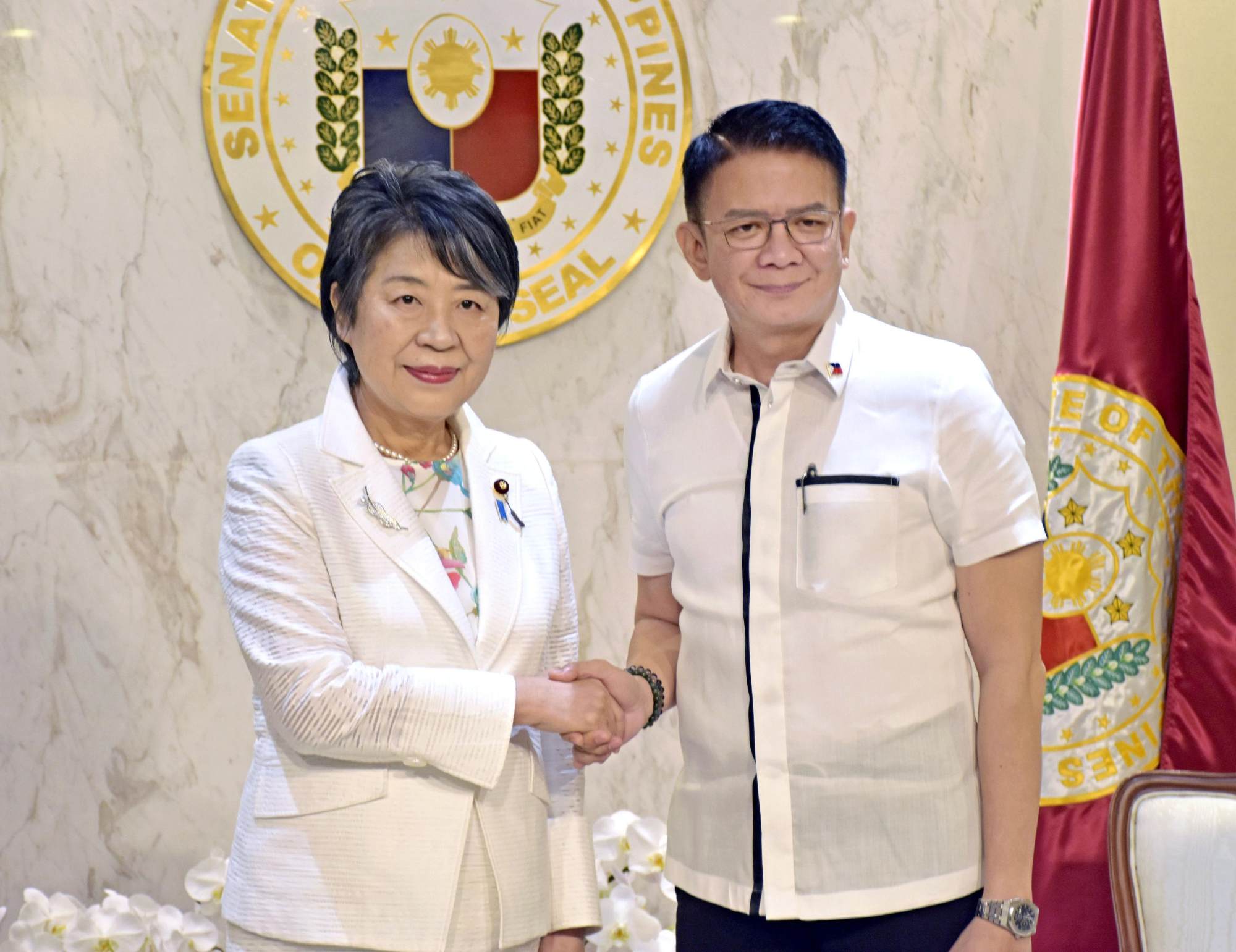
Antonio Carpio, a retired Supreme Court associate justice, believes that Senator Marcos will ultimately not oppose the agreement.
If she were to stall the process, he said other senators could convene as a “committee of the whole” to hasten the ratification – a method used during the Covid-19 pandemic to expedite legislative business.
Adding to the growing momentum, the Senate’s No 2 official Jinggoy Ejercito Estrada has stated that the RAA’s ratification will be “among the priority agenda” when the chamber reconvenes for its third regular session later this month.
Estrada’s half-brother, Senator Joseph Victor Ejercito, as well as Senators Nancy Binay, Grace Poe, and Juan Miguel Zubiri, have all issued similar statements backing the agreement.
Binay, in particular, emphasised the RAA’s importance, saying she fully supports its ratification as it would “represent our commitment to peace and security in the region.”
“The RAA’s value to national security underscores how increased maritime security cooperation safeguards Philippine economic interests,” she said.
Even senators allied with former President Rodrigo Duterte, such as Christopher “Bong” Go and Ronald “Bato” dela Rosa, have indicated they would vote in favour of the RAA, with Go telling Philippine Star newspaper that if the agreement is “good for the people, we will support it”.
The Japanese government appears to have laid the groundwork for this broad-based support through its strategic engagement. Last year, then-Senate President Zubiri led a delegation of 11 senators, including Imee Marcos, on an “official parliamentary visit” to Tokyo, where they met with Japanese Prime Minister Fumio Kishida.
This visit came shortly after President Marcos’ own state visit to Japan and the Senate’s approval of the Regional Comprehensive Economic Partnership agreement, which includes both China and Japan.
The only one in Asean
A similarly close military alliance with Japan is unlikely to be replicated elsewhere in Southeast Asia, according to a Malaysian expert, as not all Asean member states share the same level of threat assessment in regards to China.
“The kind of pact that is being signed between the Philippines and Japan is unlikely to be replicated across the region,” Ngeow Chow Bing, associate professor and director of the University of Malaya’s Institute of China Studies, told This Week in Asia on Wednesday.
“Japan and the Philippines share a heightened sense of threat [from China], but not all countries have the same level of assessment, and this kind of defence pact will be seen as unnecessary for these countries.”
However, Ngeow acknowledged that the pact could still have broader regional implications.
“Japan could certainly augment the US military power in the region, and given its proximity, it could play a robust role in providing constant surveillance and collecting intelligence,” he said.
Another expert, John Bradford of the S. Rajaratnam School of International Studies’ Maritime Security Programme, explained the underlying factors that made both Tokyo and Manila receptive to forging a defence pact.
“In both Japan and the Philippines, a strong political consensus has emerged where Chinese power is seen as a direct threat to national security,” he wrote in a commentary last month for the RSIS’ Institute of Defence and Strategic Studies.
“In both cases, this consensus only developed after deep debates and the observed failure of policies designed to accommodate Chinese power and avoid confrontation.”
Bradford noted that the Philippines and Japan, along with Taiwan, are part of what is known in US defence circles as the “first island chain”, a string of land features that prevents easy access from the Asian mainland into the open Pacific – a geostrategic reality that China now seems intent on controlling.


